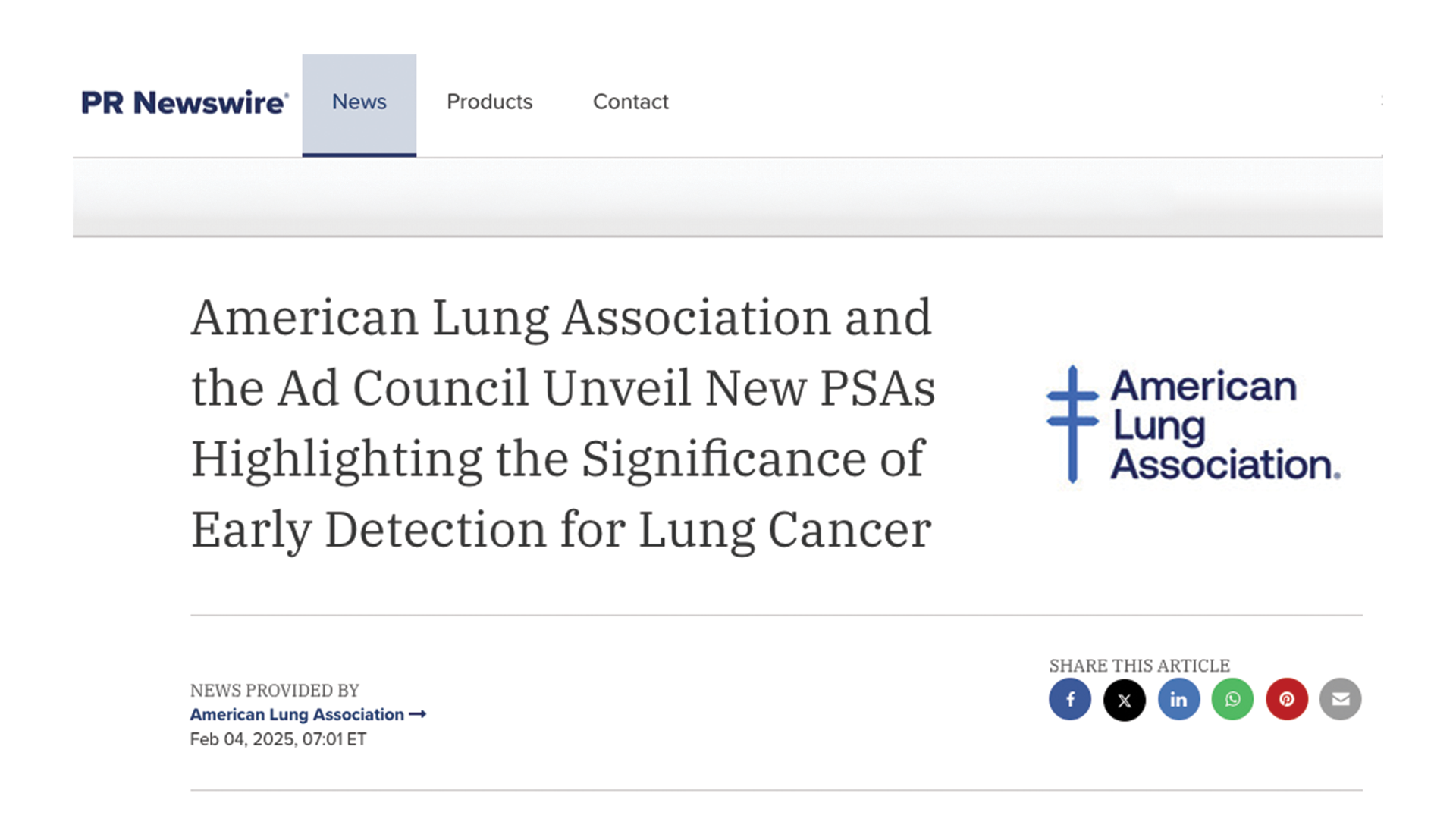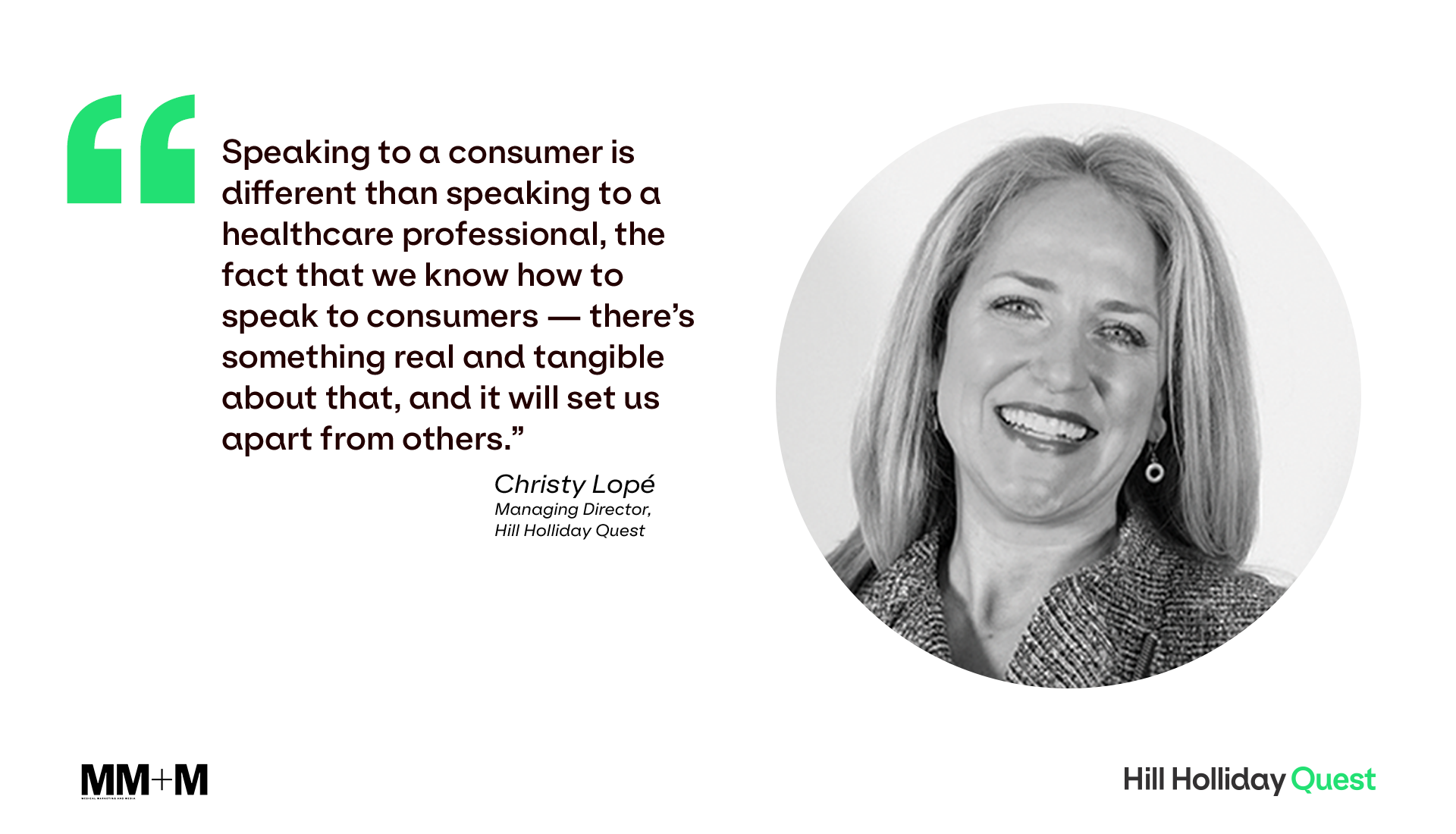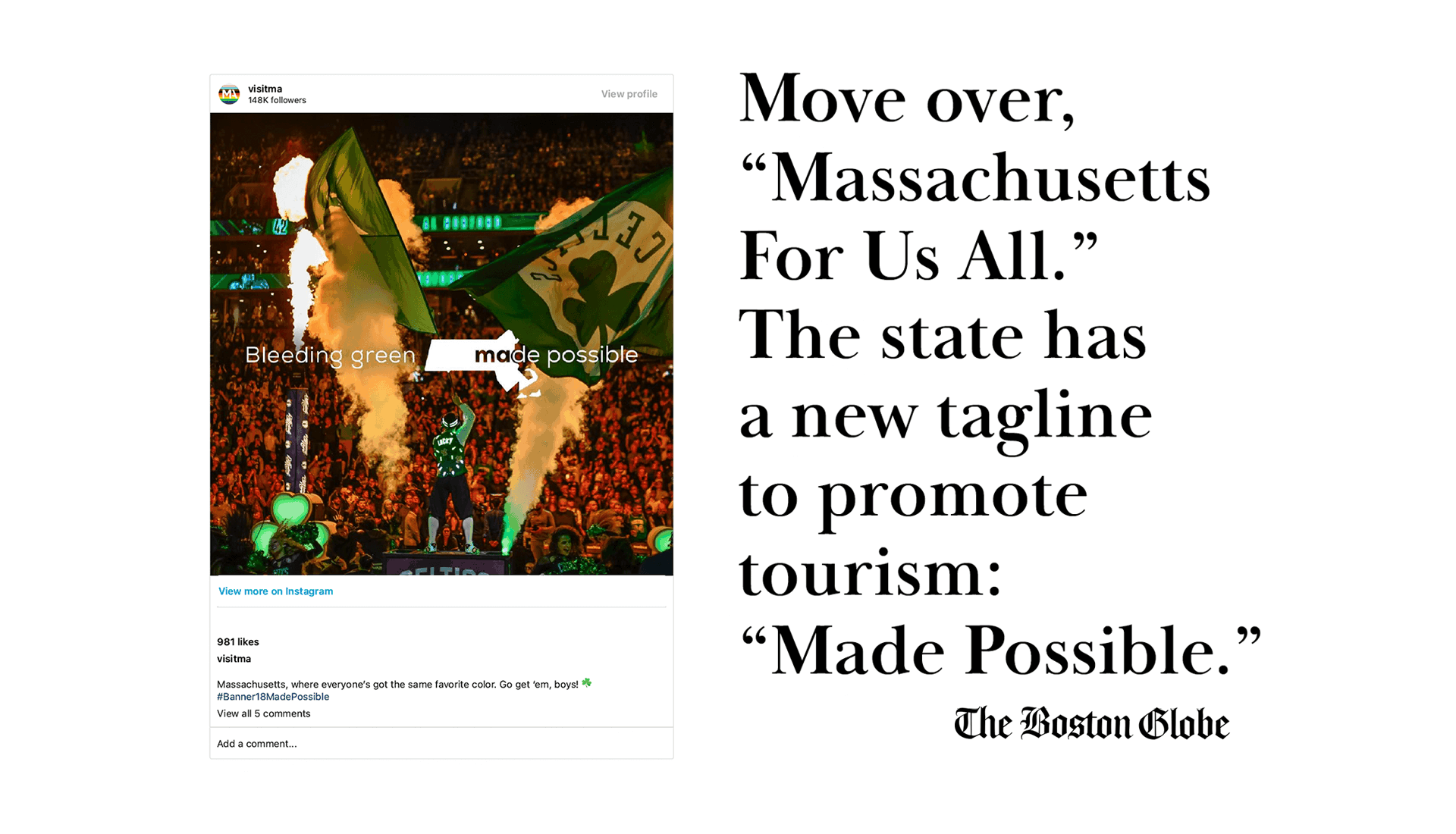We are constantly learning, applying those learnings and putting new ideas into the
world. We do this across all our verticals, because the only way to keep up with constant change is to stay in front of it.
The latest

A Billboard Saved Me from Dying from Lung Cancer — Before I Even Had Symptoms (Exclusive)
Read Now
American Lung Association and the Ad Council Unveil New PSAs Highlighting the Significance of Early Detection for Lung Cancer
Read Now
How Healthcare Brands Can Help Bridge the Gap Between Misinformation Online and Proven Clinical Data
Read Now
Hill Holliday Decision Science Partners with Marketing Intelligence Leader Funnel for Faster, More Effective Data-Driven Growth
Read Now
Hill Holliday Launches New Healthcare Practice, Hill Holliday Quest
Read Now
Hill Holliday launches new healthcare practice dubbed Quest, aiming to ‘‘infuse new energy in health and wellness market”
Read Now
Agency news you need to know this week: Hill Holliday facilitates conversations about vaping
Read Now
The Best Work You May Never See: American Lung Association, Ad Council, Hill Holliday Inspire Parents To Talk To Their Kids About Vaping In Perlorian Brothers-Directed PSAs
Read Now
Hill Holliday Promotes Dave Weist To Chief Creative Officer
Read Now
What Do Marketers Get Wrong About Gen Z? Our Very Own Gen Z Marketers Weigh In
Read Now
‘‘Made possible,’‘ here in Mass.
Read Now
Healey-Driscoll Administration Launches New “Made Possible” Tourism Campaign to Promote State History and Culture, Attract New Travelers
Read Now
Save the Day
Read Now
If You Want to Gain the Trust of ESG-Minded Consumers, Purpose-Driven Transparency Is Key
Read Now
When a food & drink trend reaches its sell-by date, how should brands respond?
Read Now
Meet the new owner of Hill Holliday and Deutsch NY
Read Now
Contact Us
Get in Touch
For new business partnership inquiries, press questions, and more contact us at Joseph.Bailey@hhcc.com
Let's Go
